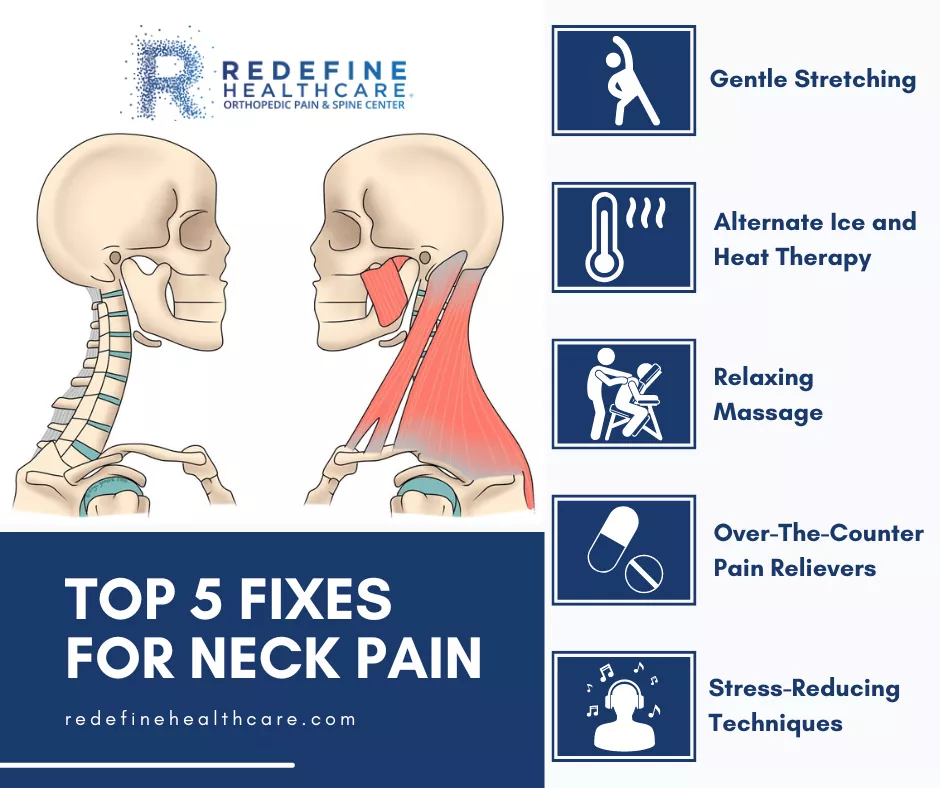We deliver to you every day from 7:00 to 23:00
The best discounts this week
Every week you can find the best discounts here.
What’s the Best Pain Relief for Neck Pain?
Neck pain is a common issue that can affect anyone at any stage of life. Whether it’s caused by poor posture, an injury, or muscle strain, it can be incredibly debilitating. Finding the best pain relief for neck pain is essential for restoring comfort and mobility. In this article, we’ll explore various pain relief options for neck pain, from home remedies to professional treatments, offering a comprehensive guide to help you find the most effective solution.

Understanding Neck Pain: Common Causes
Before diving into the best pain relief options, it’s important to understand the common causes of neck pain. Knowing the root cause can help guide treatment decisions.
1. Poor Posture
One of the most common causes of neck pain is poor posture. Sitting for long hours, especially in front of a computer or smartphone, can lead to muscle strain and stiffness in the neck area. This is often referred to as “text neck.”
2. Injuries and Accidents
Neck pain can also be caused by injuries, such as whiplash from car accidents, falls, or sports injuries. The sudden movement can strain the muscles and ligaments in the neck, leading to pain and discomfort.
3. Degenerative Conditions
Conditions like osteoarthritis and cervical spondylosis occur when the discs in the neck wear down over time, leading to pain and stiffness. These conditions are common in older adults and can cause chronic neck pain.
Home Remedies for Neck Pain
There are several effective home remedies for relieving neck pain. While these methods can help manage mild to moderate discomfort, they may not be suitable for more severe or persistent pain.
1. Ice and Heat Therapy
Using ice and heat is one of the most straightforward ways to relieve neck pain. Applying an ice pack for the first 48 hours after an injury can reduce inflammation and numb the area. After that, applying a heat pack or warm compress can increase blood flow and relax the muscles.
2. Gentle Stretches
Gentle neck stretches can help alleviate tension and improve flexibility. You can perform simple stretches by tilting your head to each side, holding for 15-30 seconds, and gently rotating your head. It’s important to avoid overextending or pushing too hard, as this can worsen the pain.

3. Massage
A massage can be an effective way to relieve neck tension. Massaging the muscles in the neck and upper back helps to increase blood circulation and alleviate stiffness. You can either visit a professional massage therapist or use self-massage techniques at home.
Pro Tip: Using a foam roller or massage ball can target hard-to-reach areas and provide deeper relief.
4. Over-the-Counter Medications
Non-prescription pain relievers, such as ibuprofen or acetaminophen, can be helpful for reducing pain and inflammation. These medications can provide temporary relief, allowing you to rest and heal.
5. Proper Sleep Position
Your sleeping position plays a crucial role in neck health. Sleeping with a pillow that provides adequate support for your neck can help prevent strain. A pillow that aligns the neck and spine properly is essential for reducing pain during sleep.
Professional Treatments for Neck Pain
For chronic or severe neck pain, it may be necessary to seek professional help. Several treatments are available that can provide more targeted relief and address the root causes of pain.
1. Physical Therapy
A physical therapist can help design a personalized exercise program to strengthen the muscles supporting your neck. These exercises can improve posture, flexibility, and overall neck health, reducing the risk of future pain. Physical therapy is especially beneficial for those suffering from long-term neck pain due to muscle imbalances or degenerative conditions.
2. Chiropractic Care
Chiropractic adjustments are another option for neck pain relief. Chiropractors use hands-on spinal manipulation to restore proper alignment and mobility to the neck. Many people find significant relief from chiropractic care, especially if their pain is related to misalignment or pinched nerves.
3. Acupuncture
Acupuncture involves inserting thin needles into specific points along the body to stimulate healing and relieve pain. Many people with chronic neck pain find acupuncture helpful, especially when conventional treatments have not provided relief.
4. Cortisone Injections
For more severe neck pain caused by conditions like herniated discs or arthritis, cortisone injections can provide significant relief. These injections reduce inflammation around the nerve roots, offering temporary pain relief. However, they are typically used when other treatments have failed.
When to Seek Medical Attention
While most neck pain can be managed at home, there are times when you should seek medical attention. If you experience any of the following symptoms, consult a healthcare provider immediately:
-
Severe or worsening pain
-
Numbness or tingling in the arms or hands
-
Difficulty moving your neck
-
Loss of bladder or bowel control
-
Pain following an accident or injury
1. Chronic Neck Pain
If neck pain persists for more than a few weeks or becomes a recurrent issue, it may be a sign of an underlying condition that requires professional treatment. Conditions such as herniated discs, degenerative disc disease, or pinched nerves may need to be diagnosed and treated by a specialist.
2. Severe Injuries
In the case of a serious injury, such as a car accident or fall, it’s crucial to seek medical attention immediately. Severe neck pain could indicate a fracture, muscle tear, or nerve damage that needs urgent care.
Preventing Neck Pain
Preventing neck pain is often more effective than treating it. Here are some tips to maintain neck health and reduce the risk of pain:
1. Maintain Good Posture
One of the most important steps in preventing neck pain is to maintain good posture. Ensure that your head is aligned with your spine, and avoid slouching, especially when sitting or standing for long periods. Ergonomic office setups, including a properly adjusted chair and monitor, can help promote better posture.
2. Exercise Regularly
Regular exercise strengthens the muscles in the neck and upper back, improving posture and reducing the risk of pain. Focus on exercises that improve flexibility, strength, and balance. Activities like yoga and swimming are particularly beneficial for neck health.
3. Take Breaks
If you spend a lot of time sitting at a desk or using a computer, take regular breaks to move around and stretch. This will reduce tension and keep your muscles from becoming stiff.

Frequently Asked Questions About Neck Pain
1. Can poor posture cause permanent neck pain?
Yes, poor posture can lead to chronic neck pain over time. It places excessive strain on the muscles, ligaments, and joints of the neck, leading to discomfort and stiffness. Correcting your posture can significantly reduce pain and prevent further damage.
2. Is it safe to sleep on my side if I have neck pain?
Sleeping on your side can be safe for neck pain as long as you use the right pillow for support. Ensure that the pillow keeps your neck aligned with your spine, and avoid sleeping with your neck in an awkward position.
3. How long does it take for neck pain to heal?
The duration of recovery depends on the severity of the pain and its underlying cause. Mild neck pain may improve within a few days to a week with rest and proper care. Chronic pain may require ongoing treatment and management.
4. Can stress cause neck pain?
Yes, stress can contribute to neck pain. When you’re stressed, you may unconsciously tense the muscles in your neck and shoulders, leading to pain and stiffness. Relaxation techniques, such as deep breathing, meditation, or massage, can help reduce stress-related neck pain.
Conclusion
Neck pain can significantly impact your quality of life, but there are many effective treatments available to help manage and alleviate the discomfort. Whether you choose home remedies, professional treatments, or a combination of both, it’s important to find the method that works best for you. Always pay attention to your posture, exercise regularly, and seek medical help if the pain becomes severe or chronic. By taking proactive steps, you can keep your neck healthy and pain-free.
For more tips on pain relief and wellness, visit DUYTHIN.DIGITAL.












